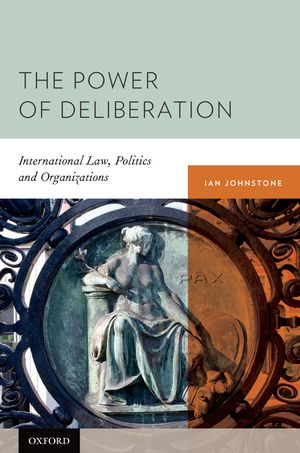
Arguing about matters of public policy is ubiquitous in democracies. The ability to resolve conflicts through peaceful contestation is a measure of any well-ordered society. Arguing is almost as ubiquitous in international affairs, yet it is not viewed as an important element of world order. In The Power of Deliberation: International Law, Politics and Organizations, Ian Johnstone challenges the assumption that arguing is mere lip service with no real impact on the behavior of states or the structure of the international system. Johnstone focuses on legal argumentation and asks why, if the rhetoric of law is inconsequential, governments and other international actors bother engaging in it.
Johnstone joins the efforts of international relations scholars and democracy theorists who consider why argumentation occurs beyond nation states. He focuses on deliberation in and around international organizations, drawing on various strands of legal, political and international relations theory to identify common features of legal argumentation and deliberative politics. Johnstone's central claim is that international organizations are places where "interpretive communities" coalesce, and the quality of the deliberations these communities provoke is a measure of the legitimacy of the organization.